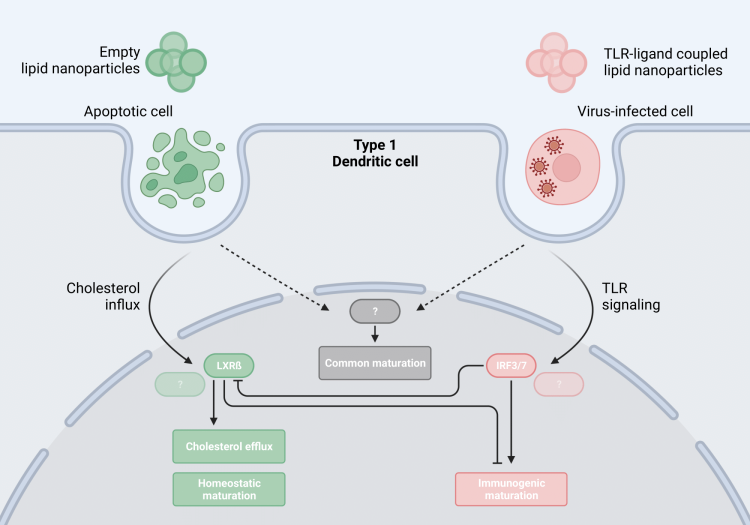Researchers reveal a crucial process in the working of the immune system
For our immune system to initiate a response to an infection, cells called dendritic cells have to present antigens to T cells. This shows the T cells where to focus their efforts and helps clear the infection. In normal conditions, however, dendritic cells shouldn't activate the immune system or else autoimmune conditions arise. New work by the teams of profs. Yvan Saeys, Kodi Ravichandran, Bart Lambrecht, and Sophie Janssens (VIB-UGent Center for Inflammation Research) reveals how dendritic cells mature without causing an immune response. Their work appears in Science Immunology and has ramifications for the treatment of various autoimmune disorders.
Raising the flag (in peacetime)
Think of the immune system as an army with regiments of different cell types that have to work together to protect the rest of the body from bacterial or viral invaders. T cells are a group of diverse cells that we can consider as the infantry of our immune army. But they have to learn how to recognize the invaders first.
That's where the dendritic cells (or DCs) come in. DCs function a bit like spies; they venture onto the battlefield, steal little pieces of the invaders (antigens) and bring them back to the T cells. Then, with these antigens, the T cells have the information they need to recognize, target, and destroy the invading bacteria or viruses. After finding and presenting antigens, DCs undergo a process of maturation.
Even when our body is in peacetime, dendritic cells mature, which helps prevent autoimmune reactions. This is called tolerogenic maturation. How it works, though, is a mystery. Until now.
Victor Bosteels (VIB-UGent), co-first author of the study: "The pathways driving immunogenic maturation in response to infectious insults are well-characterized, but the signals that drive tolerogenic maturation during homeostasis are still poorly understood. So, we decided to map the molecular processes that drive tolerogenic DC maturation."
Engulfment and cholesterol
First, the researchers confirmed that, indeed, DCs undergo maturation without being exposed to infectious stimuli in mouse models. Digging deeper, they also figured out how that process takes place.
Sandra Maréchal (VIB-UGent), co-first author: "We found that the engulfment of apoptotic cells – cells that die as a normal part of bodily maintenance, so to speak – is necessary and sufficient to trigger DC maturation. By using a single-cell technology called CITE Seq, we unraveled the genetic program behind this process and discovered that maturing DCs activate genes that help them remove cholesterol from inside their cell bodies."

With this knowledge of DC maturation in hand, the researchers took it one step further and they figured out how to mimic this process. By 'feeding' DCs empty lipid nanoparticles they could kickstart the maturation process, which suggests that the uptake of exogenous lipids, rather than the process of engulfment, is sufficient to drive the maturation program.
Prof. Sophie Janssens (VIB-UGent), who led the study: "Our work has important implications for our understanding of the immune system in autoimmune conditions. We are hopeful that our research will lead to new insights into the role of dendritic cells in immune function, and ultimately to the development of new therapies for these and other diseases."
Publication
Bosteels, Maréchal, et al. LXR signaling controls homeostatic dendritic cell maturation. Science Immunology, 2023.
